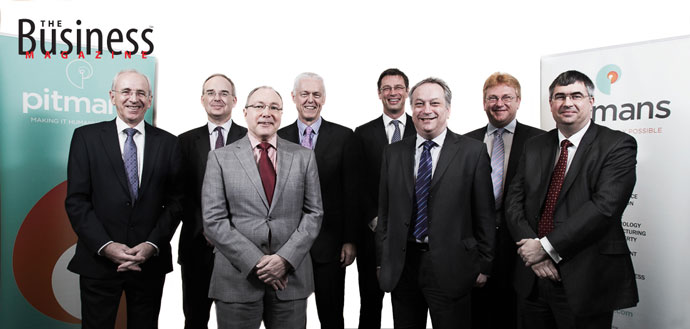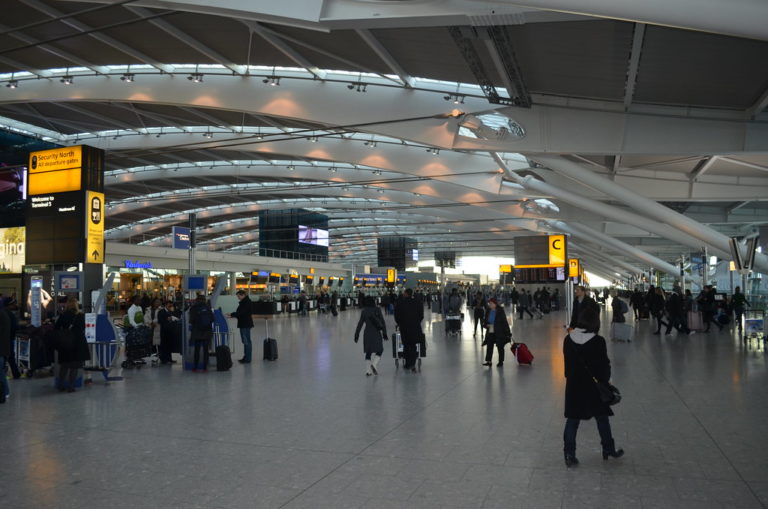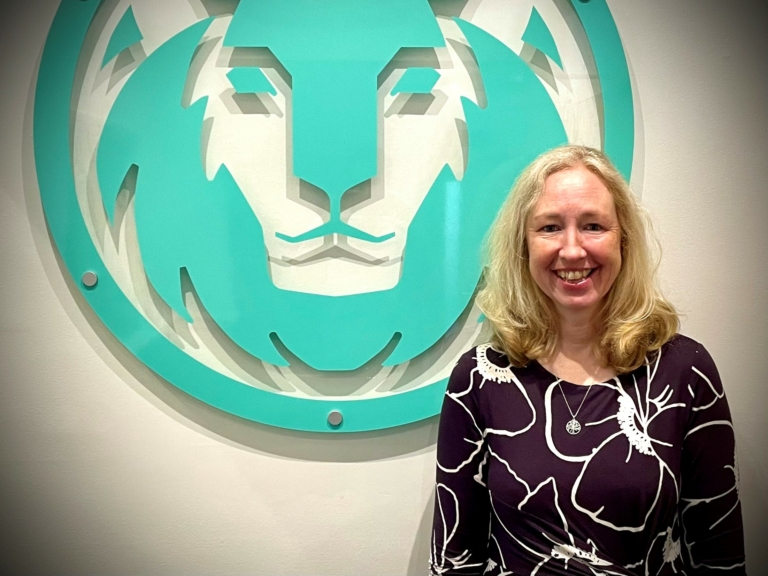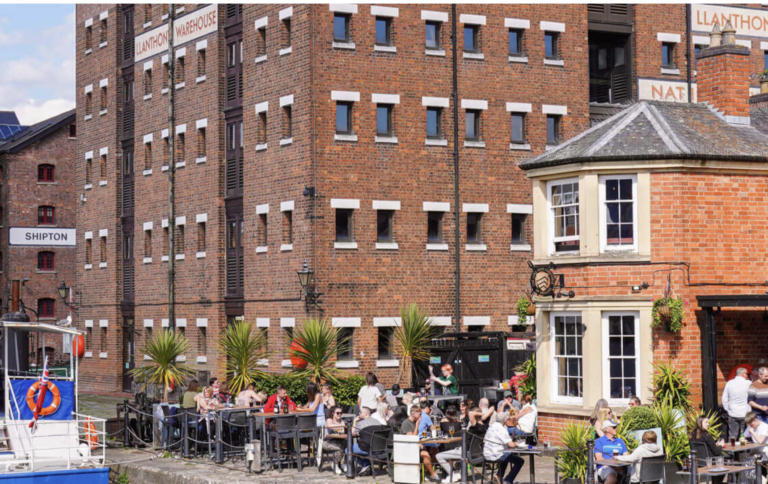Pitmans - The Thames Valley
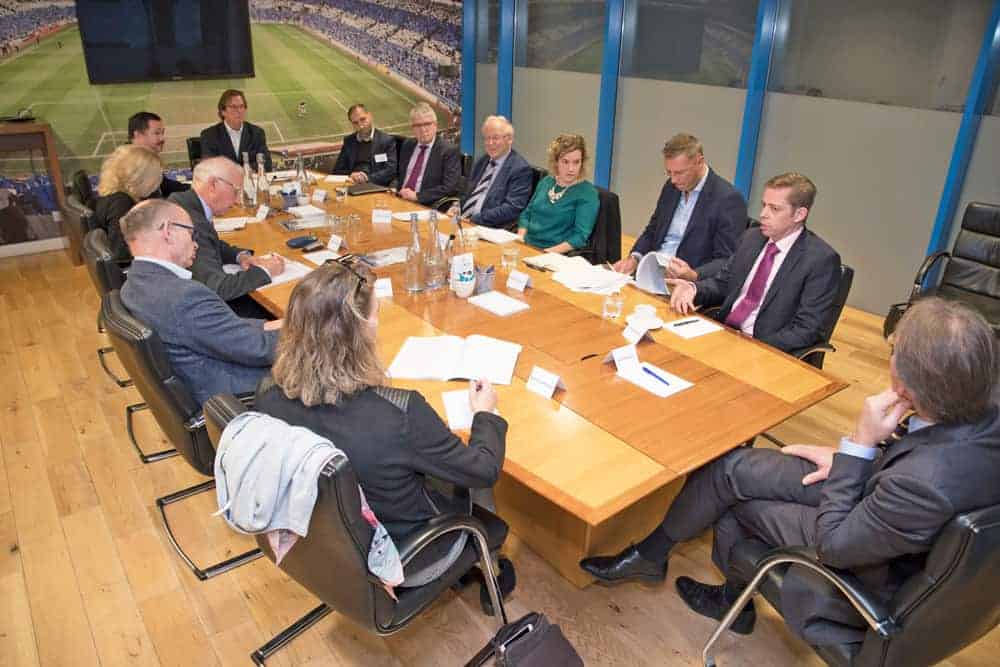
Reading-based law firm Pitmans and The Business Magazine gathered sector experts to discover if international companies, investors and entrepreneurs still see the Thames Valley as a prime place in which to settle down and do business.
David Murray began by geographically defining the economic hub of The Business Magazine’s ‘Thames Valley’ as “roughly from Banbury in the north, to Basingstoke in the south, Hungerford in the west and Heathrow Airport in the east.” Highlighting the importance of Thames Valley businesses to the UK economy, but suggested an important need for the Thames Valley, faced with growing competition from other regions, “to shout about its advantages to both the companies here and those thinking of locating here, and benefits of turning left out of Heathrow.” Then he asked:
Are we still as attractive as we think?
Paul Britton’s Chamber of Commerce work involves him with many potential inbound companies and investors. “The Thames Valley’s assets have not changed – access to Heathrow, good motorway links, skilled workforce, attractive lifestyle, etc – but there is certainly growing competition, particularly from European locations in Germany and the Netherlands that have upped their game. But, it’s not just Europe, businesses are now also looking at global locations within the emerging markets and countries.”
Inbound companies are now tending to look at smaller initial investments and greater flexibility, Britton revealed.
“Within the UK, despite government political posturing around other regions and initiatives such as Tech City and the Olympic legacy of East London, the Thames Valley still attracts more first time investment into the UK than any other region except London.”
But, Britton warned against complacency. “To compare ourselves against other regions in the UK is not a fair comparison as to where we should be aspiring to be.”
Paul Lewis stated that cost-effective transportation links – air, road and rail – particularly into London were number one for many of SEGRO’s clients. But he highlighted two other key factors favouring the Thames Valley:
its talented labour pool with its high proportion of degree level employees
its high number of successful companies already located here.
“Success does attract success, and you are unlikely to be criticised for choosing to set up a business in the Thames Valley."
Roger Gregory pointed out that businesses liked the commercial proximity of London but their employees preferred to be based in the lifestyle of the Thames Valley – a double advantage of the region’s location.
Clustering’s OK, but beware complacency
Confirming that proximity to Heathrow was still the major UK draw for inbound investment, Murray asked if established ‘clustering’ in the Thames Valley was now also a key attraction.
“To a certain extent,” answered Ross Wilson. “The Thames Valley is a very broadly-based, economically vibrant, commercial region. We are so lucky to be living and working here. I have operated businesses here in the Thames Valley since the early1980s. I have experienced three periods of financial uncertainty in the UK during the period, however, many of the businesses in the Thames Valley have returned double-digit growth during these tough times.
“The Thames Valley has excellent channels to market and great supply chains. The larger companies are creating significant employment with the SMEs providing a great supply chain and often targets for acquisition by the larger corporates. We have a talented labour pool and a phenomenal professional infrastructure including lawyers, accountants and other professionals – all of whom are fundamental to success. I do agree with Paul that this is not the time to be complacent.
“Anyone who thinks that they can merely sit back and enjoy the next 30 years of Thames Valley success would be sorely disappointed.”
Lewis revealed that Citroen had located at Slough Trading Estate in 1926, Mars in 1930. “Inward investment is nothing new. But, how we hang on to such companies is important, because that’s where we could get complacent.”
A friendlier, safer place to invest
HSBC’s Andy Brattesani highlighted a fresh flow of international investment activity to the Thames Valley, some driven by the need for a safe haven.
“In the last six months we have seen Russian, French and American companies setting up UK accounts with us, but we have also seen a lot of our UK companies opening up abroad too."
Andrew Peddie noted that in the past year Pitmans had seen an increased flow of legal work involving inbound investment – “and interestingly eclectic as to where it is coming from.”
Richard Devall mentioned increased Chinese interest. Also, Egyptian ultra high-net-worth individuals wishing to establish UK business investments beyond their troubled homeland. “One Egyptian company is actually aiming to move its entire business to the UK.”
Peddie added that the banking crisis in Cyprus had also generated work for Pitmans with Russian and Cypriot businesses. Equally, the tax situation in France was bringing work to the UK. “It’s quite interesting how rapidly businesses will consider upping sticks and setting up elsewhere.”
With the UK becoming viewed as something of a safe haven for certain European businesses, Devall asked Britton if enough was being done to encourage them.
Britton admitted that from some emerging markets the UK was “behind the curve” in relation to the pro-activity of other European countries. Germany, for example, had been targeting Chinese investment for five to six years. But, the UK was catching up, supported by business led initiatives such as LinktoChina and its present attributes – political and financial stability, non-euro currency, favourable taxation – were still attracting significant Chinese investment, such as Huawei in Reading and Hytera in Slough.
While mentioning the need to resolve immigration issues for important foreign employees, Britton added: “If UK plc gets it right and government is pro-active globally, then by the nature of the Thames Valley offer we will continue to do well.”
Brattesani mentioned two UK engineering companies investing in new machinery in order to do more of their manufacturing in-house. Previously, they had sent such work to China, but with minimum wage policies and Far Eastern workforces becoming more aspirational, it was becoming more cost-effective to keep the work in the UK.
Level playing fields and low countries
Tony Warwick highlighted the low countries as a potential threat to the Thames Valley, having seen its success and aiming to mirror it. “In Belgium, for example they can set all their national resource at just selling Belgium, whereas we in the Thames Valley have rivals even within Britain. So there is a certain tension before we get to a competitive level playing field.
“Belgium also has a very persuasive offer if you need to stock and distribute product in Europe. The Belgian workforce, for example, has very good command of European languages.
“In terms of British companies and their choice of location, I think the Thames Valley is speaking quite eloquently to the nation’s businesses and has less challenges within the UK. I may be speaking heresy, but I think the biggest UK rival to the Thames Valley is the M3 business corridor, west of Gatwick, with several major companies that could make a case for their economic location.
“Compared with areas such as Bristol or Manchester, the Thames Valley has all the trumps, but the UK is not where the ultimate competition lies.”
Warwick stressed the need to recognise that in the big picture “there are basically two flavours of inward investors,
those who invest for access to the UK market
those who invest in the UK for access to broader markets.
“They behave significantly differently. The first is an easier sell for us, but we have to be careful not to be too locally focused for the international market investors. It’s not just about routes to London, we need a richer basket of offerings, need to provide advantages and benefits of a wider nature, travel via Southampton Airport for example.
“From a national economic point of view, an inward investor who is going to export from the UK is far more important than an inward home-market investor who will employ people but essentially will just import things.
“Long-term inward investors don’t behave like inward investors at all, They behave like established indigenous British companies, and they will have a tendency to want to move house just because that’s what people do as they grow. It’s important to try to keep them here, of course, but they don’t teach us a lot about fresh investors.”
How do we build the Thames Valley brand abroad?
Britton: “You can spend an inordinate amount of money promoting your offer in broad terms abroad, whereas the most powerful message is the one that gets through to the company decision-makers, and their peers with whom they talk. The aim should be to get such people to share conversations pointing out that moving to the UK doesn’t have to mean locating in London.
“It is all about leveraging the ‘who’s already here message’, which is a very powerful advantage that we have in the Thames Valley.
“There is a huge appetite amongst businesses in the Thames Valley to shout about the good things that the region has to offer, both among the established professional service firms and the multinational companies that have located here.
“That’s very important, because there is also a government focus trying to rebalance the UK economy. We’ve got the right offer, but we haven’t been given the bags and balloons that the Government is providing to the other regions.”
He mentioned that companies, such as Cisco and Microsoft, were very keen to endorse the benefits of the Thames Valley, the reasons that they had chosen it, and why they continue to invest in the region. And, it was important that the professional services fraternity echoed those plaudits.
“I’m not talking here about competing head to head with those regions looking to place market their ‘brands’ supported by public money or city campaigns. We can be effective by offering all Thames Valley companies dealing with foreign-owned companies or potential inward investors a common song sheet, that is what the new inward investment portal www.thamesvalley.co.uk is all about”
Are we all singing from the same song sheet?
Murray queried if the differing agendas of the Chambers of Commerce, Thames Valley Berkshire LEP, professional bodies and commercial sectors would make this ‘one voice’ approach viable.
Local Enterprise Partnership member Ross Wilson answered: “The LEP IS making excellent progress. The LEP has representation on it from the Chambers of Commerce, the Federation of Small Businesses, CBI, Institute of Directors (Wilson is ambassador for the IOD southern region), SMEs, major multinationals and includes key players representing education, employment and skills as well as local authorities and the community sector all working together on the plan to deliver economic prosperity for the next 20 to 30 years. This wide variety of representatives is a major strength of the LEP, which is primarily business-focused.
“We have got some great traction now and some serious intellectual horse-power around the table and on the sub groups. Top people now want to be at that table. Also, from minimal initial funding we’ve now secured some serious money to spend in our region.”
Wilson also stressed that a big message of global advantage for the Thames Valley today was its economic stability and security. “We need to ensure we give companies the absolute certainty, wherever possible, that we can provide them with a very stable and secure environment in which to work and prosper. We only need to think back to some of the horrors of the last 30 years to see the adverse impact of terrorism in our country and in our business and wider community.”
Do we project the right image?
Murray pointed out that there are more manufacturing companies in the south-east than in any other region in the country, and yet the Thames Valley is still known by many as the UK’s Silicon Valley.
Britton: “A lot of the messages we give out about the Thames Valley are actually UK level messages because this is an international location. Our counterparts abroad tend to concentrate on place-marketing, but for us that pitch is further down the line.”
Lewis: “There is work to be done on attracting new inward investors, but the key thing is promoting the Thames Valley by concentrating on the great cluster of well-known companies that we have got here – and ensure we keep them. Such companies have always got costs under the microscope. We need to be competitive at all times and constantly promoting our advantages.
“Encouraging them to continue to invest here should be our most productive way forward and if we can top it up with some new inward investments, then we have got something quite powerful happening.”
Devall queried if the Thames Valley, being a ‘patchwork’ of varied geography, cultures, business sectors and authorities, was a concern for inward investors.
Lewis replied that prospective inbound companies were aware of this but businesses in the south-east needed to work together to promote regional unity through their LEPs and Chambers of Commerce, particularly as the Thames Valley does not have the strong public sector support as many other UK regions.
Britton: “The Government missed a trick with the funding of other cities and regions. That was all about places, whereas we know for inward investors it matters more about the chosen community being proven, tried and tested, and has the right business environment. Just imagine being the company CEO responsible for setting up a business in another country. There is enormous comfort in knowing that experience around the business table is there from the moment you get off the plane. Their relief is almost palpable when you can show them that the global brands and start-ups at the same stage of growth are already here.”
Warwick: “We do trip ourselves up on our pure mapped geography, when all we really have to do is draw quite a big circle around the Thames Valley, paint it all blue or red and say to people: ‘Here is a big block of really good stuff and it’s just left of Heathrow.’ The problem is we start segmenting it ourselves.”
Britton agreed that ‘eyes just glaze over’ if inward investors get too much detail about political or administrative boundaries. “Their primary focus is about: ‘Is there a supply chain? Is there a good business community here? Can I get a workforce?’ They don’t need to know the Thames Valley boundaries, just that if they turn left at Heathrow and see Computer Associates HQ on the right and Windsor Castle on the left then everywhere within one hour is a tried and tested international business location."
Brattesani pointed out that to Americans, the Thames Valley is a very small business area, making it convenient to them for collaboration and access.
Warwick reminded the Roundtable that Silicon Valley in the US is actually more a concept name than an actual defined business area.
Wilson: “For the Thames Valley Berkshire LEP the geographic definition is very important and clear – it is exactly what it says on the tin. The Government has made it very clear they are aiming to create competitive tension between LEPs for the huge sums they intend to allocate to LEPs throughout the country in due course. So, we need to be clear on our territory in order to pull together the right people to support our LEP and get our fair share of this vital funding which is so critical for the growth of the wider Thames Valley. Those people are likely to have a clear interest in our area by virtue of living and working here.”
Britton: “That’s fine for the allocation of funding, but in terms of educating companies about what we have to offer in the Thames Valley, sometimes our government agenda doesn’t marry up with the expectations of a company looking to come into the country.”
Is Tech City a threat?
Britton said he understood the current focus around the East London legacy but Tech City was a different offering to the Thames Valley. “It’s more about start-ups and social media development, and it’s not the only digital hub in the UK.” He suggested that in marketing terms the difference could be expressed as: “When you have finished in the kindergarten, come and play with the big boys in the Thames Valley.”
He didn’t necessarily see Tech City as a threat. “Given the directive comes from No.10 it will continue to be promoted and so should the Thames Valley, but differently. Tech City may develop new IP, but the Thames Valley is where you customise and commercialise it; this is where you grow the business and make money.”
Pointing out that Tech City has limited business space and the Thames Valley does not, Warwick agreed that Tech City could actually help promote the Thames Valley.
“There seems to be a conspiracy not to mention Tech City, but that’s entirely wrong. Talk about it, but in its proper context, because in doing so it clarifies the nature and benefits of the Thames Valley.”
Wilson disagreed: “ At the LEP we want Thames Valley Berkshire Local Enterprise Partnership to be THE brand encompassing everything that is good about our area including of course technology. We don’t want to water down our brand value and too much focus away from the prime brand runs the risk of doing just that.”
Warwick: “In many ways the Thames Valley can be seen as the IBM product that you don’t get fired for buying. It is the safe harbour for investment in the UK, for those who ask ‘Where can I go for the best business fit?’”
Britton: “The UK is not without its challenges, but if the UK does well, then the Thames Valley will do well. Similarly, if Tech City does well, and we are positioned correctly, we will do well.”
Where do you hang your hat?
Murray asked if SEGRO in the Thames Valley found itself competing with Tech City over clients and business space.
Lewis: “For companies already based here, the competition is generally from overseas locations. Frankly, you are taking your eye off the ball if you think you are competing with the guys down the road. Most companies looking to invest in the UK will do a small fledgling start-up, which can be in all manner of places, but the real win is when they decide to get established here. That’s when you want them to select the Thames Valley.” Hytera, number two in the world to Motorola, started in Burton-on-Trent before settling in Slough, he pointed out.
Pitmans’ Roger Gregory exampled an Indian company setting up in the UK. It had developed technology in India, was testing it through universities in Leeds and London, and yet wanted to set up commercialisation of it in Reading. “It’s an easier location to work, but has good access to top universities and London.”
Devall noted that first office locations were generally set up “almost next door to where the senior management live.” Strategic business locations came much later when the company had grown to a significant size.
Murray asked if the regional availability of office and commercial stock was adequate?
Lewis said that despite the austerity economy, “the interesting phenomenon now is that good quality new stock or high standard refurbishment is the space that companies are taking. There is still a restrained supply of that, driven by lack of capital availability to property companies and developers, but demand is not yet at a level where supply is critical.”
The Roundtable noted how Huawei had recently moved from Basingstoke to Reading’s Green Park, which could be perceived as a statement of intent with the creation of prestigious UK headquarters in a flagship business area. “The real win there is that they stayed in the Thames Valley,” said Lewis.
Home sweet home
Peddie: “My decision to move out of urban London was driven by my family and where we wanted to live, and I think that will be a significant decider for senior management thinking about setting up in the UK.”
Wilson agreed: “I’ve lived and worked in the Thames Valley since 1976 – it’s a great place to be.”
What’s missing in the region to make it more attractive?
‘Better infrastructure’ came the Roundtable answer.
Devall: “Our infrastructure is an advantage, but also a weakness.” He listed traffic jams in and out of Reading, Heathrow at capacity, Reading station development not being linked to Crossrail, lack of Thames bridges and a rail station at Green Park.
Britton agreed that such gateway infrastructure was often the poor first impression that visitors got on visiting the region. “Investment decisions can be based upon those first impressions, and remember we are being measured against European locations not just other UK regions.”
Wilson stressed that infrastructure along with other major issues were very much on the LEP agenda which also included improving broadband speed and connectivity throughout the Thames Valley with all the benefits that would accrue from this.
Lewis highlighted the connectivity problems of SMEs. “They are being by-passed by the broadband provider in favour of home installations.”
Warwick: “That’s literally true. Highways of data are winging their way to homes, straight past small business clusters.”
Britton stated that broadband improvement was “a drum that we have to keep on beating”.
Heathrow – A help or hindrance?
Lewis added that the biggest regional issue remained the decision on resolving the future of the UK hub airport – Heathrow. “It’s been the driver of the Thames Valley for as long as any of us can remember.”
Devall: “In brand terms, the word ‘Heathrow’ must be better known worldwide than ‘Thames Valley’. But, when we say we are ‘near Heathrow’ do inward investors still get a good vibe from it?”
Lewis: “They have done, but I think the name is now teetering on the edge.”
Warwick: “Using ‘close to Heathrow’ as a tagline nowadays can be risky.”
Britton: "Heathrow is well-known internationally and Oxford, Windsor, Henley and Ascot have a positive resonance abroad for Thames Valley marketing. That’s why we are looking to be as Thames Valley inclusive as we can, and involving multiple LEP and authority areas and also key clusters within the Thames Valley region.”
Reading rail upgrade – A help or hindrance?
Murray suggested Reading Station’s major development was an obvious bonus to the town in retaining its large employers and attracting small businesses to the area.
Warwick questioned that, mentioning the difficulties in accessing Reading by rail locally, particularly from the south. “Companies tell me that they don’t enjoy the main arterial links to Reading because they live or work just outside. It’s actually a pain in the neck for them to get into Reading to get the train to where they want to go.”
“The problem with the new station is that it will attract cars as well. People don’t make enough use of the local rail network into Reading from surrounding areas. Why don’t we have some good Park & Ride facilities at places like Mortimer or north of Reading, allowing people to get into Reading easily without adding to the traffic problem? I often drive into Reading and take a train, and I wish I didn’t have to.
“There is very woolly thinking about Park & Ride. We could actually get a lot more value out of using the rail network into Reading, rather than the main lines out of it.”
A patent advantage?
Britton mentioned the positive effect for the UK of the Government’s stance on taxation with respect to R&D and IP patent protection, and wondered if the Thames Valley could leverage this advantage.
Peddie agreed there was an opportunity, but one currently being missed by many, both resident businesses and inbound companies. “You would think that any smallish or even medium-sized accountancy practice would be right on top of this subject, but apparently not. A firm of a certain scale and skillset is required to be able to advise and deal with the complexity of the topic.”
Warwick: “Even the specialist patent firms have not done enough to promote it,”
Peddie: “I had assumed everyone in the accountancy sector would be talking to their clients on this topic, but I was staggered when I met businessmen recently who knew nothing about it. R&D and Patent Box are important developments in the attractiveness of the UK generally and they definitely play to the strengths of Thames Valley professional services sector, with its many excellent firms, in supporting the retention and investment of companies in this region, but it shows that you need advisers of the right level of expertise.”
Access to good quality employees
Brattesani: “Our customers say the biggest problem currently is recruiting quality staff in the Thames Valley. I wonder if that is going to be a future problem – increasing competition for staff – that might deter companies from coming in?”
Wilson spoke about the importance of new Thames Valley infrastructure – Western Rail Access to Heathrow now approved and Crossrail coming to Maidenhead. “When I spoke to several large corporates recently, the major attraction of Crossrail was the ability to attract more talent to come into this area not the links it provided for people to go outside the area.”
Warwick: “What we don’t do well enough is co-ordinating the offering to university undergraduates of Thames Valley opportunities of internships, sponsored post-graduate work and so on. That will help keep talent in the area.”
Murray noted that universities should not be the only focus. Further education in institutions such as Reading College, and vocational training courses also part of the picture.
Peddie felt there was evidence of UK rebalancing of the employment pool with the provision of suitable skillsets to assist future business needs, but “I don’t have any sense of how good this region is as a whole compared to others, in its standards of higher education for technology or engineering and training for those sectors the region is strong in.”
Warwick believed that some manufacturing was now moving back to the UK as offshore production and supply chain costs rose. But, talent was obviously concentrating on areas and centres of excellence, such as the motorsport cluster around Oxford. He also pointed out that the British university system is not geographic. “Students will come and go.
“Centres of excellence are not always a friend. So what, if Oxford and Cambridge are perceived as the best? In the Thames Valley we probably don’t need such speciality. If you look at Foreign Direct Investment deal-flow into this area, the top three are ICT, life sciences, and advanced engineering. That’s a very wide range of things and over-specialisation in the Thames Valley would probably not best serve us.”
Britton: “The focus is all around centres of excellence at the moment, but the benefit that the Thames Valley has is its breadth of talent. Although we do have technology hot-spots, it is the convergence of our technologies that will create the most opportunities for this area in future.”
Participants
Andy Brattesani: Area commercial director, HSBC
Paul Britton: Head of inward investment, Thames Valley Chamber of Commerce
Richard Devall: Partner, Pitmans
Roger Gregory: Partner, Pitmans
Paul Lewis: Regional director, Thames Valley, SEGRO
Andrew Peddie: Partner, Pitmans
Tony Warwick: International trade adviser, UKTI
Ross Wilson: Forum member, Thames Valley Berkshire Local Enterprise Partnership
David Murray: Managing editor and publisher of The Business Magazine, chaired the discussion




